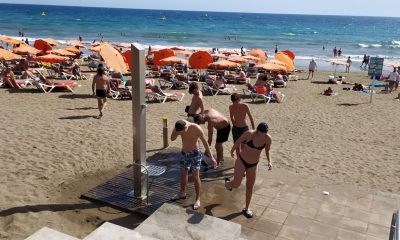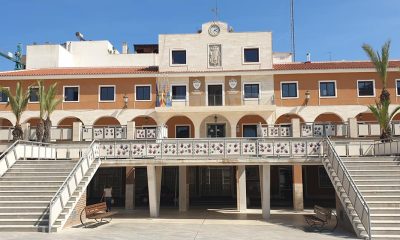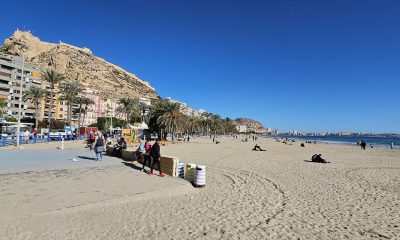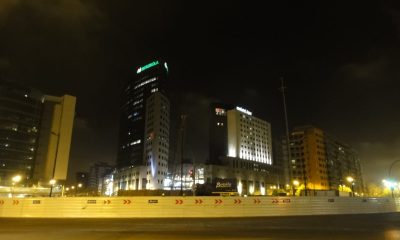Costa Blanca
Competition on Spain’s railways is driving down prices
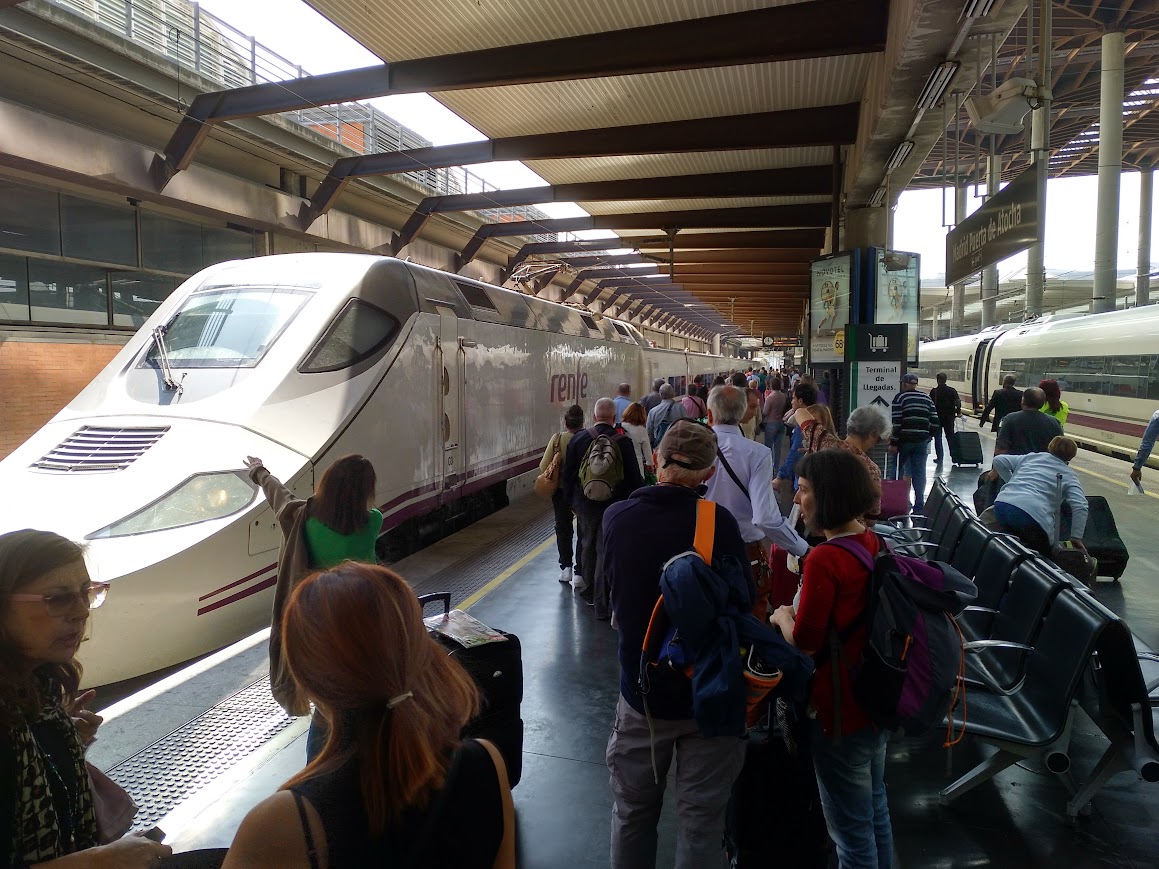
Recently, Spain’s high-speed railways have experienced a significant transformation. The country’s railway network has been opened to private operators since market liberalisation in 2020, and the results have been dramatic: ticket prices have decreased, availability has increased, and rail is now surpassing air travel on certain critical routes.
For travellers, this new era entails an increase in the number of available seats, an improved value, and a decrease in the number of compelling reasons to fly.
Fares are reduced when markets are open.
Spain’s high-speed lines, which were previously dominated by the national operator Renfe, now offer various services as a result of the entrance of new players such as Ouigo from France and Iryo from Italy. With a combination of full-service and budget-friendly offerings, these newcomers have revolutionised the industry.
This shift has had an immediate and substantial effect on prices:
In comparison to pre-competition levels, the average fares on the Madrid–Barcelona route have decreased by as much as 40%.
Ouigo has provided tickets at a rate as low as €9. Additionally, it attracted well over two million passengers during its inaugural year in 2021.
The same competitive pressure has resulted in a 27.6% decrease in tariffs on the Madrid–Alicante line.
This reduction in costs has rendered high-speed rail a compelling alternative to domestic flights, not only in terms of price but also in terms of convenience.
Rail Revolution in Numbers
The percentage of travel between Madrid and Barcelona that is attributed to rail has increased from 59% in 2019 to 81.8%.
In response to the advent of new competition, Renfe’s own low-cost service, Avlo, has contributed to the expansion of the rail market as a whole.
In the most recent figures from the CNMC (Spain’s competition authority), Ouigo received the fewest customer complaints of all operators.
CNMC reports that nearly 90% of passengers use these services sporadically rather than on a regular basis. The affordability of high-speed rail is attracting a broader base of leisure travellers, rather than just business passengers, although the majority of travellers are still infrequent users of the service.
Renfe commences to address the demand
The increase in capacity has made rail cheaper and more accessible. Experts in rail travel assert that the competition has been long overdue.
“The competition from high-speed operators, including Ouigo and Iryo, has resulted in a significant increase in the number of seats available and a decrease in fares.” Trains were frequently overcrowded and prices were exorbitant prior to this. Renfe had been under-providing and over-pricing on routes such as Madrid–Barcelona, in my opinion.
The short scheduling windows of Renfe were previously one of the most frustrating aspects of booking train travel in Spain. Frequently, the publication of tickets just two weeks prior to travel restricted early-bird savings and forward planning.
Smith also mentioned that Spain has experienced an additional advantage. “For years, Renfe has been infamous for its tardiness in launching ticket sales, occasionally with as little as two weeks’ notice. Such behaviour is absurd.” This remains an issue on numerous Renfe routes; however, on routes where they now face competition, they have miraculously prolonged the booking horizon to numerous months.
Not without opposition
The new landscape has not been well received by all, despite the advantages it offers to passengers. Renfe is concerned that low-cost competitors are employing unsustainable models and receiving state support in their home countries. There are also broader concerns about whether aggressive price cuts can be sustainable without compromising quality or service.
However, passengers are currently exercising their right to vote by boarding the train.
An irreversible return to the rails?
Spain’s rail network is rapidly becoming a symbol of the advantages that liberalisation can provide consumers.
Trains are no longer the costly and rigid alternative. They have become increasingly popular among a broader variety of travellers, as they are a fast, affordable, and environmentally friendly method of travelling between major cities.
Discover more from Costa Blanca Daily
Subscribe to get the latest posts sent to your email.
Costa Blanca
AP-7 tunnel at Pilar de la Horadada will be closed for at least 2 months
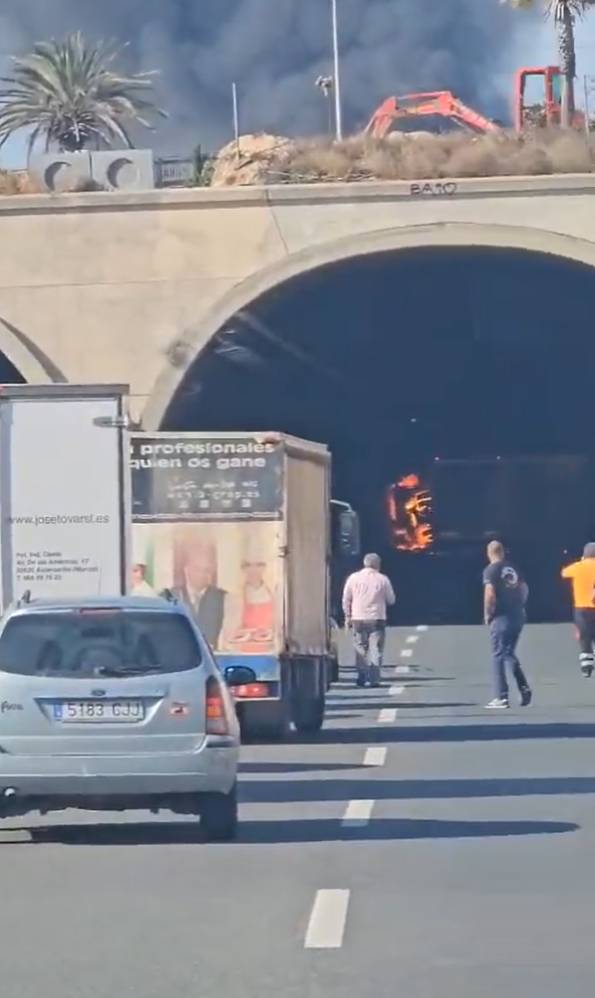
The accident that occurred a few days ago in the AP-7 tunnel in Pilar de la Horadada, in which a truck caught fire and killed its driver, has damaged the infrastructure to the point where it will be closed in the Alicante-Cartagena direction for at least two months, reaching the peak of the summer season.
An inspection found that the northern half of the tube’s lighting and communications circuits and the two fans closest to the fire are damaged and need to be evaluated by the manufacturer.
In addition, the protective elements, trays, video surveillance circuit, and half of the inside cameras were damaged. The dealership is installing outdoor spotlights to allow work to be done inside, beginning with scrubbing the walls using pressurised water.
All of this means that traffic cannot be restored in the impacted area for at least the next two months. Until then, traffic will be diverted to the N-332, which runs parallel for approximately 4 kilometres near the town of Pilar de la Horadada. As a result of the road closure, there are considerable traffic bottlenecks on this segment, which is a normal route with one lane in each direction and multiple roundabouts. This issue will deteriorate when the summer season begins.
The Ministry of Transport and Sustainable Mobility intends to complete the essential repairs as well as the ongoing energy efficiency measures. However, to avoid more disruption for passengers, the upcoming work on the Alicante-bound tube will be postponed until at least September.
Although the infrastructure is the responsibility of the concessionaire Ausur, which manages the most expensive sections of motorway in Spain between La Zenia and Los Montesinos – while the section between Cartagena and Orihuela Costa and Los Montesinos-Crevillent that this concessionaire executed in exchange is free -, the funds being used for the work are Next Generation, European public funds, and the ministry – not the company – has processed the entire
This 800-meter-long tunnel, with an average daily traffic of 19,000 vehicles, opened in 1999 with the construction of the Ausur motorway, and is built and operated until 2048 by a private concessionaire led by large Murcian enterprises. It is free of charge in this part.
The Ministry had intended to begin a phase of work on Monday, May 25th, in the opposite lane where the accident happened, Cartagena-Alicante, which would require a closure, but after publicising the work only two hours after the tragedy, it eventually suspended the intervention.
The works are part of the Ministry’s €3.5 million project to modernise lighting and security systems. The investment will include the renovation of the power supply, emergency lighting, evacuation signage, emergency stations, public address systems, a fire hydrant network, ventilation systems, the installation of new automatic fire detection cameras, traffic control systems, and exterior tunnel closure barriers, among other projects.
The tunnel’s lighting system will also be modified to improve the facility’s energy efficiency by introducing an intelligent control and regulation mechanism. It will be necessary to replace the current VSAP luminaire technology with LED equipment that can be dimmed point by point.
The sophisticated lighting regulation and control system will enable continuous lighting regulation of individual units based on outside brightness and tunnel occupancy levels.
All of this has been postponed until September following the disaster last Friday, when a truck overturned within the AP-7 tunnel at Pilar de la Horadada at kilometre 272, travelling towards Cartagena. One of the wheels apparently burst while passing through the tunnel.
The 55-year-old driver, originally from Valencia, was delivering steel pipes when he lost control of the vehicle, which caught fire. When it overturned onto the cab’s carrier side, he became trapped and perished.
The mix of flammable elements, such as the truck’s own gasoline, plus the fact that it remained inside the tunnel exacerbated the fire, resulting in a tremendous volume of flames and smoke that spread throughout the infrastructure.
According to the Provincial Fire Consortium, another truck was involved in the accident but remained inside the tunnel and did not catch fire. Its driver managed to get out on his own.
Personnel from Torrevieja, Almoradí, Orihuela, and Elche parks cleared the remaining tunnel, resulting in no further casualties. Meanwhile, there were major traffic congestion on the highway from Alicante to Cartagena, as well as on the N-332’s alternative and parallel route.
Discover more from Costa Blanca Daily
Subscribe to get the latest posts sent to your email.
Costa Blanca
Guardamar analyses tourism demand and warns of a deterioration in the British market
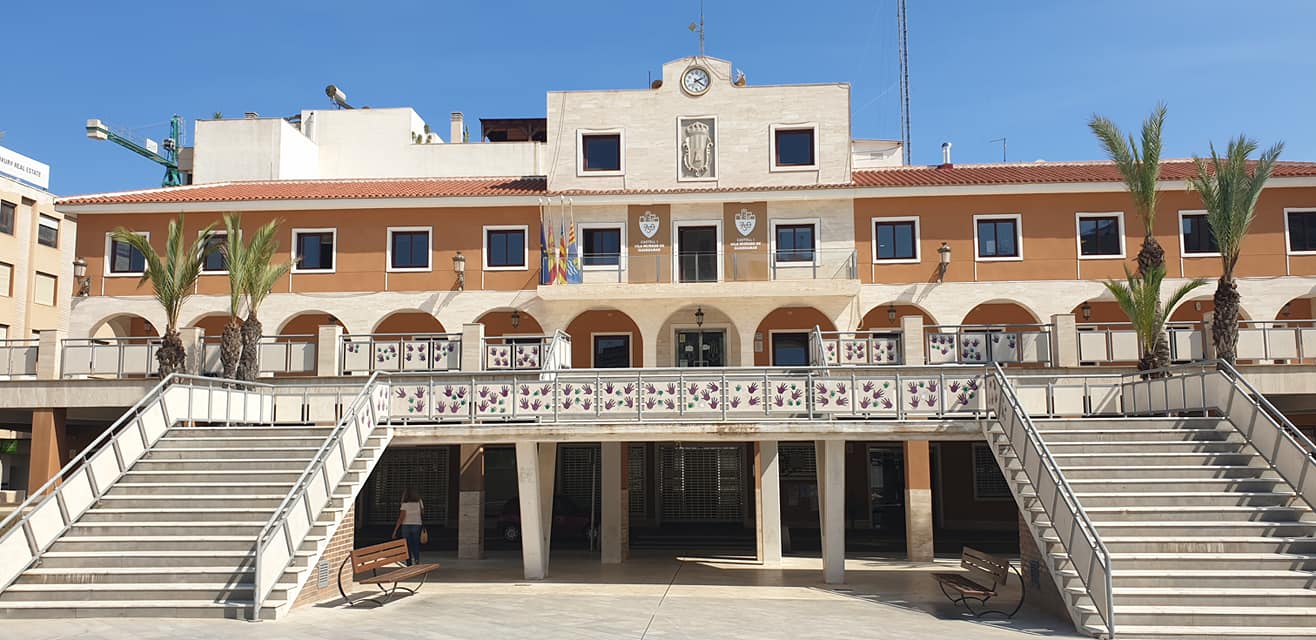
Guardamar del Segura’s tourist strategy remains sensible and sustainable. On May 14th, the Interdepartmental Technical Commission (CTI) reconvened at the Town Hall Plenary Hall. The discussion examined the evolution of tourism demand through 2024, with a focus on the performance of the British market, which is one of the municipality’s primary suppliers of tourists.
The Alicante-based tourist firm Sien Consulting, administering the Smart Office, presented the most pertinent data from the study during the session. One of the most beneficial elements is an increase in visitor arrivals during the low season, which is being driven by the advent of new foreign markets. This strategy promotes deseasonalisation of tourism, which benefits the local economy and broadens the profile of people who visit Guardamar outside of the summer months.
However, the research also identifies an urgent issue: the erosion in the importance of British tourism. José Luis Sáez, the mayor of Guardamar, stated that “it is a priority to further interpret the data to identify the reasons for the slowdown in the British market.”
Guardamar thus underlines its commitment to a smart tourism model that can anticipate changes in travel trends and make decisions based on real data. Institutional coordination and a coordinated approach will be critical in maintaining the municipality’s position as a top tourism destination year-round.
Discover more from Costa Blanca Daily
Subscribe to get the latest posts sent to your email.
Costa Blanca
Alicante pre-allocates beach bars and sun loungers on all beaches except San Juan

The Alicante City & Beach Tourist Board has pre-awarded the services of beach bars, sun loungers, lockers, and boat rentals for all beaches except San Juan, totalling €874,166.
The services were placed out to bid in five lots, and over 30 interested companies submitted proposals. The updated specifications include an expansion of the service, which will now run from March 15th to November 2nd, rather than May 1st to October 31st. The contracts will be valid for the next four years, with the option for a one-year extension.
After opening the envelopes containing the bids, they were classified for later awards. Manuel Romero Vargas was the highest-ranked bidder for Lot 1, which includes the management of umbrellas and sun loungers on Tabarca Island; for Lot 2, which includes umbrellas, sun loungers, and a beach bar from Urbanova, along with umbrellas and sun loungers from Agua Amarga, Sgao Asfáltica took first place; for Lot 3, which includes umbrellas, sun loungers, lockers and nautical rentals in El Postiguet, the UTE Compromiso, made up of Restaura Gestión Forty and Como S
The concession for these services in San Juan Beach is being put out to competition under another contract that will stay in effect this year.
Discover more from Costa Blanca Daily
Subscribe to get the latest posts sent to your email.
-
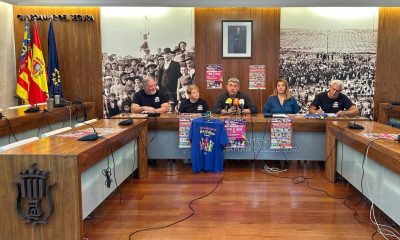
 Costa Blanca1 week ago
Costa Blanca1 week agoThe El Raso, Guardamar celebrates with a Tapas Route and concerts between May 15th and 17th
-

 Costa Blanca1 week ago
Costa Blanca1 week agoAP7 Motorway tunnel at Pilar de la Horadada CLOSED due to fire
-

 News1 week ago
News1 week agoFour people arrested in Alicante province for storing and exchanging child pornography
-

 Costa Blanca1 week ago
Costa Blanca1 week agoElche joins the national protests for Palestine on May 10th
-

 Costa Blanca1 week ago
Costa Blanca1 week agoMosquitoes in Elche and Santa Pola are on the warpath
-
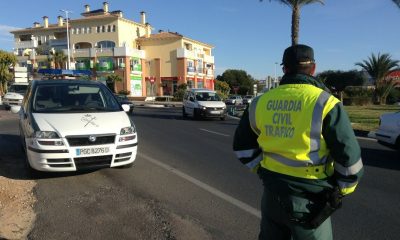
 Costa Blanca1 week ago
Costa Blanca1 week agoOne dead when a motorcycle collides with truck on Orihuela Costa
-
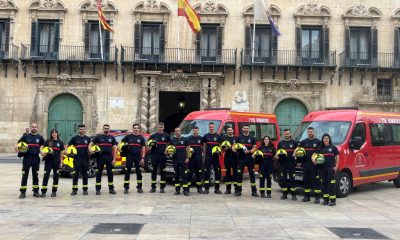
 Costa Blanca1 week ago
Costa Blanca1 week agoAlicante adds 15 temporary firefighters, increasing its total staff to 175
-

 Costa Blanca1 week ago
Costa Blanca1 week agoOne dead migrant and 16 others dehydrated on boat found 62 miles off Alicante



